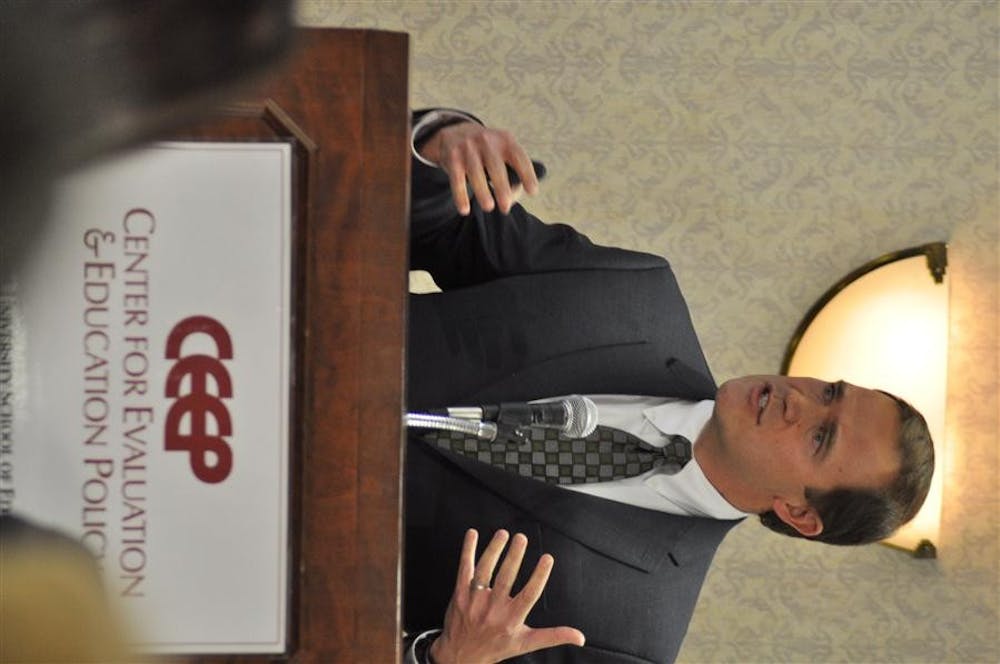Five urban education experts said though reforming urban schools is difficult, plans for Indianapolis Public Schools are gaining ground.
Almost 50 people filled the Georgian Room of the Indiana Memorial Union to hear the panel discuss the distinct problems urban schools face in the U.S.
IPS and proposed district reforms were used as a microcosm of the national issue.
IPS Superintendent Eugene White and David Harris, founder and CEO of the Mind Trust, offered analyses of the specific problems affecting IPS, and which reforms would solve those problems.
The Mind Trust is an education reform driven non-profit organization, and the discussion mostly involved its plan for IPS. Harris said it centers around shipping resources and authority from the administration level to the school level.
“The system is broken,” Harris said. “I want to be very clear. We don’t think the people are the problem. We think the structure itself needs to change.”
IPS’s structure should provide more autonomy for schools, sensible funding and choices to families, he said.
One problem with granting more autonomy to school principals, though, is that they’ll be expected to do too much, White said.
“You’re going to have to have some support,” he said. “One support would be a committee.”
Harris said changes to how schools are funded would provide the money necessary to develop support for school officials.
Both Harris and White agreed changes to funding, or extra state funding, are necessary for preschool education. The two said deficiencies in early education inflate the achievement gap.
“We need a program called early education, or preschool, to try to get them ready for kindergarten,” White said. “Why? Because, quite frankly, a few years ago when we had half-day kindergarten, we were getting 45 or 50 percent of our kids ready for first grade. Once we went to full-day kindergarten — this is the sixth year for the kindergarten — we’re getting 68 percent of our kids ready for first grade.”
He said if students attend preschool prior to enrolling in kindergarten, they could extend that number to 90.
“We completely agree with everything Dr. White said about the importance of preschool or early education,” Harris said. “Indiana is in the dark ages on that front. I hope that I am wrong, but I do not see the likelihood of universal preschool being funded in the near future. We need to make that a priority.”
Indianapolis Deputy Mayor of Education Jason Kloth also said preschool is crucial to closing the achievement gap, which he said is creating a lack of confidence that is damaging the city’s economy.
“We’ve lost about 200,000 residents,” Kloth said. “Families with school-age children are leaving.”
He said the city lost $57 million in tax revenue in 2010 because those people left.
Improving IPS restores confidence and helps the community, said Tammie Barney, vice president of the Indianapolis Chamber of Commerce. She said healthier schools result in more job and wealth creation.
“Now is the time for reform,” Barney said.
Education experts discuss IPS reform

Get stories like this in your inbox
Subscribe



